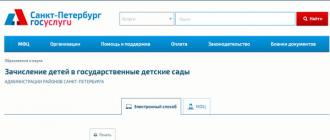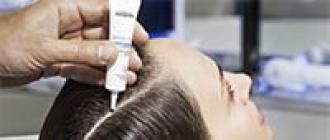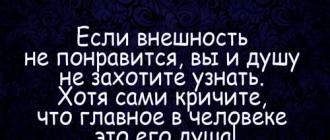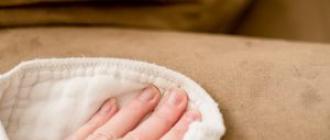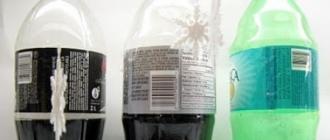To make a child smart and reasonable, make him strong and healthy: let him work, act, run, scream, let him be in constant motion.
Jean Jacques Rousseau
The summer recreational period is a seasonal period of time during which a system of activities aimed at the improvement and physical development of children is implemented.
The stay of preschool children in the fresh air in the summer strengthens and tempers the child's body, has a positive effect on the comprehensive development. The main task of adults is to fully satisfy the need of a growing organism for rest, creative activity and movement. A well-planned system of recreational, educational and entertaining activities will help to ensure the necessary level of physical and mental development of children. It is important to organize the life of preschoolers in such a way that every day brings them something new, is filled with interesting content, so that memories of summer time, games, walks, holidays and entertainment, interesting episodes will please children for a long time.
The success of summer recreational work with preschoolers is largely determined by how competently and timely all participants in the educational process prepared for it.
Regulatory documents
Carrying out preventive, tempering, health-improving and educational activities with children in the summer period is regulated by regulatory documents:
· Convention on the Rights of the Child (approved by the UN General Assembly on November 20, 1989).
· The Constitution of the Russian Federation of December 12, 1993 (Art. 38, 41, 42, 43).
· Federal Law No. 124-FZ of July 24, 1998 “On Basic Guarantees of the Rights of the Child in the Russian Federation”.
· Federal Law "On Education in the Russian Federation" dated December 29, 2012
· Order of the Ministry of Education and Science of the Russian Federation of September 17, 2013 No. 1155 "On approval of the federal state educational standard for preschool education."
· Order of the Ministry of Health of Russia dated 04.04.03 No. 139 "On approval of instructions for the introduction of health technologies in the activities of educational institutions."
· Sanitary and epidemiological requirements for the device, content and organization of the working hours of a preschool educational institution SanPiN 2.4.1.3049-13, approved by the Chief State Sanitary Doctor of the Russian Federation of May 15, 2013 No. 26.
· Instructions for protecting the life and health of children in preschool institutions and playgrounds, approved by the Ministry of Education of the RSFSR on January 30, 1955.
· The main educational program of preschool education of the municipal budgetary preschool educational institution "Kindergarten No. 47 of a general developmental type with priority implementation of the cognitive and speech development of children."
Principles of planning health work
The following principles should be adhered to when planning recreational work:
· integrated use of preventive, hardening and health-improving technologies;
· continuous implementation of preventive, hardening and recreational activities;
· use of simple and accessible technologies;
· the formation of positive motivation in children, parents and teachers to carry out preventive hardening and recreational activities;
· increasing the efficiency of the system of preventive and health-improving measures by complying with elementary rules and regulations: optimal motor mode, physical activity, sanitary condition of the institution, catering, air-thermal regime and water supply.
Organization of work during the summer recreation period
The goal is to improve the quality of health-improving work with pupils and to widely promote a healthy lifestyle among all participants in the educational process in the summer.
Tasks of the summer recreational period:
· to implement a system of measures aimed at improving the health and physical education of children;
· create comfortable conditions for the physical, mental, moral education of each child, the development of their curiosity and cognitive activity;
· organize a health-saving regime that ensures the protection of life, the prevention of morbidity and childhood injuries;
· to educate parents on the education and health of children in the summer.
When preparing for the summer recreational period, one should proceed from the need to take into account the following factors:
· PLO DOO;
· individual socio-psychological characteristics of children;
· features of the climate zone.
The system of health improvement of children in the summer period includes:
· annually, by the summer recreation period, equipment is repaired and painted, areas are supplemented with small architectural forms, playground equipment;
· the delivery of earth and sand, the planting of trees, the laying out of flower beds are organized;
· every day, the work of adults is organized to comply with sanitary and hygienic requirements (sand is processed in sandboxes, the floor on the verandas is washed daily, in hot weather, areas are watered, grass is mowed in a timely manner, etc.);
· a subject-developing environment is organized on the territory of the preschool educational institution (equipment for playing and educational research activities in sand and water, portable umbrellas, shady canopies, covers for sandboxes, the range of portable equipment is expanding);
· the regime of the day of the summer recreational period is observed, corresponding to the PLO of the preschool educational institution;
· the drinking regime of the summer recreation period is observed, corresponding to the PLO of the preschool educational institution (drinks are issued at the first request of the child);
· the duration of walks and sleep increases (in accordance with the sanitary and epidemiological requirements for the device, maintenance, equipment and mode of operation of preschool educational institutions, clause 2.12.14);
· various types of children's activities (playing, communicative, labor, cognitive research, productive, musical and artistic, reading) and independent activities of children are organized in the air;
· regular conversations are held on the topic: "Formation of ideas about a healthy lifestyle."
Expected results
· introducing children to the values of a healthy lifestyle;
· development of the emotional-volitional sphere of pupils;
· raising the level of ecological culture of pupils (development of ecological - humane, environmental, consciously careful attitude to nature);
· increasing the level of communication skills of children;
· increasing efficiency in working with parents on healthy lifestyles;
· activation of children's cognitive interests in labor activity in nature.
The functioning of health-saving, purposeful, systematically planned work of the entire staff of our educational institution leads to the following positive results:
· Reduction of children's morbidity in the summer recreational period.
· Absence of cases of traumatism and poisoning of children.
· Improving the level of physical and mental health of children.
· Increasing the efficiency of physical culture and health work.
Literature
1. Kuznetsova M. N. The system of measures for the improvement of children in preschool educational institutions [Text]: a practical guide / M. N. Kuznetsova. – M.: Iris-press, 2007.
2. Kozhukhova N. N. Physical education teacher in preschool institutions [Text]: textbook for students of higher and secondary pedagogical educational institutions / N. N. Kozhukhova, L. A. Ryzhkova, M. M. Samodurova; edited by S. A. Kozlova. - M .: Publishing Center "Academy", 2002.
3. Penkova L. A. Under sail, summer floats on the Earth [Text]: a methodological guide for employees of preschool institutions, students of pedagogical universities and colleges / L. A. Penkova. – M.: Linka-press, 2006.
4. Belkina V. N. Preschooler: learning and development [Text]: / V. N. Belkina, N. N. Vasilyeva N. V. Yolkina. - Yaroslavl: "Academy of Development", 1998.
5. Kartushina M. Yu. We want to be healthy [Text]: health and educational activities for children of the preparatory group of the kindergarten / M. Yu. Kartushina. - M .: TC Sphere, 2004.
6. Frolov, V. G. Outdoor physical education with preschool children [Text]: a manual for a kindergarten teacher / V. G. Frolov, G. P. Yurko. – M.: Enlightenment, 1983.
7. Voronkova L. V. Sports club in a children's health camp [Text]: / L. V. Voronkova, M. A. Solomchenko. - M .: Pedagogical Society of Russia, 2006. 8. Grishina T.V. Little tourists [Text]: / T.V. Grishina // Kindergarten from all sides. - 2004. - No. 36.
Vdovichenko Svetlana Alexandrovna , educator of activity,
Wegner Irina Nikolaevna , physical education instructor,
Vorobieva Tatyana Petrovna , educator,
Terekhova Oksana Viktorovna , educator,
MBDOU "Kindergarten No. 47 of a general developmental type with priority implementation of the cognitive and speech development of children",
Polysaevo, Kemerovo region
The stay of preschool children in the fresh air in the summer strengthens and tempers the child's body, has a positive effect on their comprehensive development. The main task of adults at the same time as fully as possible to satisfy the need of a growing organism for rest, creative activity and movement. A well-planned system of entertainment, educational and recreational activities will help to ensure the necessary level of physical and mental development of children. Summer is an amazing and fertile time when children can walk, run and jump to their heart's content. It is during this period that they spend a lot of time outdoors. And it is very important to organize the life of preschoolers in such a way that every day brings them something new, is filled with interesting content, so that memories of summer time, games, walks, holidays and entertainment, interesting episodes from their lives will please children for a long time. The success of summer recreational work with preschoolers is largely determined by how competently and timely the entire staff of the preschool institution prepared for it. To help the teachers, the deputy head of water resources management picked up the necessary reference and methodological literature, notes on leisure and entertainment, picked up a card file of games with water, games-experiments, games to form a healthy lifestyle in children. Great help to educators can be provided by the use of material from the experience of working with children in the summer in previous years:; practical advice and methodical recommendations:
- Recommendations for the prevention of childhood injuries in the summer).
- Recommendations for traffic rules
For a full-fledged educational work with children, it is necessary,
At the final pedagogical council in May, teachers get acquainted with the main tasks of the work of preschool educational institutions in the summer: - develop children's environmental thinking through expanding ideas about the flora and fauna, natural phenomena, people's work in nature, experimentation; - to teach ways of caring for plantings in a garden, forest, flower garden - to cultivate a desire for plants, to work - to develop emotionally friendly relations with living objects of nature and peers in the process of communicating with them. - to improve the motor skills of children; - to develop the psychophysical qualities of the child's personality; - to learn to ride a 3-wheeled bicycle, a scooter on their own. The plan for summer recreational work is discussed in detail in the kindergarten team, the role of each teacher in its implementation is determined. At the same time, the wishes and suggestions of educators, specialists, their creative ideas are taken into account, which are then embodied in interesting events. There are no training sessions during the summer. It is recommended to organize sports and outdoor games, sports holidays, excursions, etc., as well as increase the duration of walks (in accordance with SanPiN) Any kind of children's activities (play, work, artistic creativity, etc.) are organized outdoors. All this brings a lot of joy to preschoolers, improves their emotional state, promotes mental activity.
Summer is a wonderful time of the year. He is loved by adults and children. In the summer you can walk, run, get stronger, grow up, learn new things.
The main task of the institution of preschool education in the summer is to organize the life of preschool children so that every day brings them something new, is filled with interesting content, so that memories of summer holidays, games, walks, holidays and entertainment will please them for a long time.
From the first of June, the preschool institution is switching to work in the conditions of the summer regime. In accordance with the Code of the Republic of Belarus on Education, the duration of the summer recreational period (summer holidays) in a preschool education institution is 90 days.
With the onset of a hot season, the specifics of the work of a preschool institution also change. Teachers organize and carry out work with children, creating comfortable conditions for preschoolers to stay in the fresh air: they plant trees and trees in group areas, repair and paint outdoor play equipment, and replenish the number of portable equipment for children to play.
The summer period in kindergarten is usually called a wellness period, and it has its own characteristics. Not all parents have the opportunity to leave the city in order to improve the child's health, to purchase vouchers to sanatoriums. The task of the kindergarten is to make the most of the summertime conditions favorable for strengthening the health of children, to ensure that the child gets stronger, recovers and hardens.
During the period of summer recreation, the priority is the organization of children's activities of physical culture, health and artistic and aesthetic orientation.
In a preschool institution during the summer holidays, physical culture and health work is carried out, which includes:
- morning exercises;
- physical education classes (game, plot, thematic type);
- outdoor games and physical exercises for a walk;
- active recreation (sports activities, sports holidays, Health Days);
- independent motor activity;
- hardening by natural factors (air, water, scattered rays of the sun).
In the summer, favorable conditions are created for the physical activity of children and strengthening the healing effects of physical exercises. All components of physical culture and health-improving work are carried out daily in the air.
Artistic and aesthetic work, which includes:
- visual activity (drawing, modeling, application, design, children's design);
- musical activity of pupils;
- familiarization with works of fiction and folklore.
In order to create emotional comfort for children during the summer recreational period, we organize:
- the inclusion of visual activity in children's holidays;
- entertainment, which includes children experimenting with visual and natural materials, helps to consolidate ideas about the types, genres of art, means of artistic expression, competitions with various nominations;
- organization of creative workshops, entertaining game libraries, sand games.
When organizing musical activities with pupils, the following are carried out:
- musical and didactic games, musical quizzes;
- inclusion in the educational process of musical works embodying "summer" images (A. Vivaldi, P. I. Tchaikovsky, etc.);
- solo and collective music making;
- independent musical activity of children (performing songs and dances, organizing role-playing games with “musical” plots).
Thus, summer in kindergarten is a busy time filled with laughter, joy and fun. All the efforts of the employees of the preschool institution are aimed at improving and hardening the child's body.
CAREFULLY - SUMMER!
Dear moms and dads!
Summer is the time for travel and new experiences. To make your vacation enjoyable, be vigilant and careful, remember the dangers that lie in wait for children on a long trip and during a vacation.
Travel hazards
by private transport:
- open windows;
— not locked doors;
- stops in unfamiliar places.
Place children only in a child car seat! Fasten your child with seat belts.
Do not allow the child to stand between the seats, lean out of the window, put out his arms, remove the block from the door, touch the handles while driving.
A child can only get out of the car after an adult.
Dangers associated with train travel:
- open windows;
- vestibules of wagons;
- top shelves
- boiling water;
- strangers.
Do not allow the child to look out of the windows and put their hands out of them, throw objects into the windows, go out into the vestibule, communicate with strangers in the absence of relatives, take treats from them.
Dangers associated with life in the country or in the countryside (especially for an urban child):
- stove;
- well;
- tools;
- abandoned boards with nails;
- unfamiliar animals;
- Swimming in ponds.
The child must firmly remember that he cannot:
- open the oven door and touch the oven damper;
- look into the well;
- touch tools
- swimming in the absence of adults responsible for it.
- come close to unfamiliar animals, feed them, pet them;
Roller skating and cycling hazards:
- a steep slope of the road;
- bumps on the road;
- passing traffic.
Do not allow a child to go outside with a bicycle, scooter or roller skates without adult supervision. Teach him to stop at dangerous places - exits of cars from yards, from parking lots, etc. Allow him to ride only on sidewalks with a flat surface. If the child still does not control the bike well and often falls, provide him with personal protective equipment - knee pads, elbow pads, a helmet.
Swimming Precautions
Carefully inspect the place of rest and bathing. Check for broken glass, sharp stones and other dangerous items. Don't forget to wear a hat for your child on the beach. Sit with your child in the shade of trees, avoiding direct sunlight. Enter the water with the child gradually. A sharp immersion of a hot body in cool water can cause heart failure and convulsions.
Don't let your child get too cold in the water. Alternate swimming with games on the beach.
unfamiliar food
As a safety measure for children on vacation in the summer, watch what they eat. To keep your kids safe on vacation in the summer and protect them from digestive upsets, follow some important nutritional rules:
Do not let children try local delicacies and try to be more careful about them yourself;
If your child is allergic or has certain food preferences - find out if you can buy these products where you are going, or take them with you;
In some hot countries, you should not wash your face with tap water and, moreover, drink it - it's better to buy bottled water;
Do not eat unwashed fruits and vegetables and do not give them to your child;
Practice good hygiene - wash your hands with antibacterial soap.
Beach safety rules
Warm, crumbly sand - a real expanse for children! But it also contains many dangers: bottle fragments, dangerous infections, garbage, sharp stones, cigarette butts, etc. Explain to the child in advance that it is not worth pulling handfuls of sand into your mouth, and you need to roll in it carefully. Do not forget to carefully inspect the place you have chosen to spread the blanket yourself.
Every summer, the sad statistics of deaths on the water is summed up - and very often children turn out to be drowned. To prevent tragedy, parents need to observe safety rules when visiting the beach with children:
The child should always be in your field of vision - contrary to scenes in feature films, a person who drowns does not scream or wave his arms;
Swim with children only in permitted places - on equipped beaches where there are lifeguards;
If you are in the water with a small child, always keep at arm's length from him;
Do not neglect the use of inflatable rings and cuffs - these devices will help your child stay on the water and not sink to the bottom;
Do not allow children to run into the water;
Know how to provide first aid.
Summer period in kindergarten significantly different from class time. At this time, children spend almost all the time they are in a preschool institution on the street. Even the reception of children is carried out not in a group, but on the street. And before breakfast, they breathe fresh air and have fun, do exercises.
After breakfast, the older children again go out into the street. Here they spend all their free time until lunch. If the temperature outside is too high, the teacher must ensure that the children are in the shade, in the pavilions. Be sure the teacher must take water and clean mugs outside so that the children can drink some water if they wish.
On the street, children can be organized and occupied. You can have a drawing competition. Only such a competition will be without paper and paints. Children will draw their masterpieces on the pavement with crayons. The teacher can offer the kids to make crafts for the playground, see the best ideas.
If you wish, you can do it together and which they will take home. From plasticine you can make whole pictures on cardboard. Children can depict, for example, how they represent summer.
There is always something to do outdoors. The main thing is the imagination of educators. Sports competitions and various competitions can be organized.

Hardening is necessarily included in the summer program of a preschool institution. This concept includes sun and air baths. The hardening scheme in each garden may be different. In some kindergartens, hand washing in cool water is practiced; in other gardens, children are offered to walk barefoot on the grass or on specially prepared natural materials.
What kind of food do children have? Compared to the previous period, food in the summer changes slightly. First, fresh juice is added. Secondly, fresh fruits and vegetables are included in the diet. After all, it is in summer that these products contain the greatest amount of vitamins and minerals. As for hot dishes, they try to make soups that do not have to be served hot. Beetroot can also act as a liquid dish.

After dinner, the children go to bed, have an afternoon snack and go outside again.
The educator has a great responsibility for the health of children, and being outside all the time a child can get heat or sunstroke. It is very important that the teacher not only monitors the presence of a headdress in the child, but also that the children spend most of their time in the shade in the pavilion.
During the summer period, preschool institutions significantly change their program. This is due not only to the fact that many pupils leave the kindergarten for a while, going on vacation with their parents. First of all, the change is dictated by the need for more frequent stay of pupils in the fresh air and the organization of a system of tempering activities. Summer recreation period in preschool educational institution allows you to implement a number of programs aimed at the general improvement of children and their physical development.
Summer work plan at preschool It is compiled in such a way as to provide equally entertaining, educational and recreational activities. The final program is regulated by the following regulatory documents:
- Federal Law No. 124-FZ of July 24, 1998 "On the Basic Guarantees of the Rights of the Child in the Russian Federation",
- Order of the Ministry of Education of the Russian Federation No. 1155 dated September 17, 2013 "On the federal educational standard for preschool education",
- Order of the Ministry of Health of the Russian Federation No. 139 dated April 4, 2003 "On approval of instructions for the introduction of health technologies in the activities of educational institutions",
- SanPiN, which determine the mode of operation of the preschool educational institution and the requirements for organizing events in a preschool institution.
Organization of the work of kindergarten in the summer
Health-improving work in the kindergarten during the summer period sets the main goal of instilling in children love and interest in a healthy lifestyle. As part of this work, the following tasks should be implemented:
- a program of activities has been developed that takes into account the nuances of the local climate and the individual socio-psychological characteristics of children,
- comfortable conditions for outdoor activities and games have been created,
- measures are provided aimed at increasing the involvement of children in the healing process, developing their curiosity and interest in their own health,
- a day regimen is organized that ensures sufficient stay of pupils in the fresh air (taking into account weather conditions),
- steps have been taken to educate parents on all matters relating to the new programs.
Summer wellness plan in kindergarten must necessarily include physical education, the development of a rational healthy menu, tempering procedures and organizational work with parents. All methods used in the implementation of this plan should be simple and understandable, inventory and equipment should be accessible. It should be possible to regularly carry out hardening and preventive measures, regardless of weather conditions.
Before starting the implementation of a general health program, it is necessary to find out if any of the pupils have individual contraindications to participate in it. The management of the preschool educational institution and teachers should establish and constantly maintain contact with the parents of pupils and monitor the health of children throughout the summer recreational period. The participation of a medical worker in the formation and implementation of a health program is mandatory.
The effectiveness of the summer recreational period program in the preschool educational institution largely depends on whether the norms of the optimal motor regimen of pupils and the standards for physical activity are observed in the kindergarten. The general condition of the institution, catering, the quality of water supply, and the quality of ventilation are also important.
Preparatory activities
It is recommended that every year before the start of summer, cosmetic repairs be carried out in kindergarten - putting playgrounds in order, supplementing them with new equipment (if possible), equipping flower beds and lawns, bringing fresh sand to sandboxes.
Each playground on the territory of the preschool educational institution must have a shady and sunny zone. For this purpose, additional canopies can be installed. Sand in sandboxes is recommended to be covered with covers or protective covers, it should be slightly moistened throughout the day.
Windows are equipped with mosquito nets. The irrigation system for lawns and playgrounds must be fully operational. In hot weather, it is allowed to water the sites with cool water.
All pools located on the territory of a preschool institution must be cleaned and have a properly functioning drain-fill system.
Playgrounds for children under three years of age should have a soft grass surface. Playgrounds for children aged 3-7 years are also equipped with areas with compacted soil. All footpaths must be smooth, without potholes and pits. Play and safety equipment must be carefully secured, stable and completely safe. This equipment must be dusted daily. All toys intended for outdoor play should be rinsed under running water every evening.
Summer preschool work also provides for an increase in the duration of walks and sleep (according to SanPiN). Drinking during the summer period should be given to children at the first request. All outdoor activities (playing, reading, dancing, crafting, etc.) must take place outdoors.
Organization of a summer recreational period in a preschool educational institution
The summer program provides for a number of changes in the work of a preschool institution. First of all, it is necessary to pay attention to the nutrition and physical activity of children.
Nutrition
The summer menu should be as balanced as possible. It is very important that the selected dishes fully provide children with vitamins and minerals, and also have sufficient energy value. Preference should be given to fresh fruits and vegetables, natural juices. Additionally, vitaminization of ready-made liquid dishes can be carried out in the preschool educational institution - the addition of ascorbic acid (vitamin C) according to the norms per serving.
To automate the process of compiling the menu, it is convenient to use the program module "Nutrition management, diet control" of the educational institution's activity control system. It contains technological maps of dishes and allows you to create a menu-requirement, a cyclic menu, a menu-layout and other reporting in a few clicks. Read more about the program.
The plan for the summer in kindergarten should also take into account the increased need of children for drinking water. For drinking, clean non-carbonated water of industrial packaging is used, or boiled, in the latter case, the water is stored for no longer than six hours.
Physical education
Summer plan at preschool necessarily includes a number of physical and recreational activities:
- morning exercise,
- outdoor games,
- hardening,
- thematic and plot physical education classes,
- holidays, Health Days and other social events with the organization of physical culture minutes.
During physical education classes, it is necessary to pay attention to the individual characteristics of children and try to interest each pupil. Main tasks for the summer recreation period in the preschool educational institution- this is the prevention of postural disorders in children, the prevention of flat feet, the development of coordination, instilling in children an interest in sports games, gymnastics, and a healthy lifestyle.
Hardening methods in preschool may include:
- sleep with open windows (no drafts),
- walking barefoot on sand or lawn (4-5 minutes daily - in groups up to three years old, up to 20 minutes daily - in older groups),
- washing with cool water
- health walks.
When planning a summer program, it is necessary to have conversations with parents and find out whether the child really needs to attend kindergarten in the summer. If with the beginning of summer there is a significant reduction in the number of children in the preschool educational institution, then it is allowed to re-form the groups, including the creation of teams of different ages.

